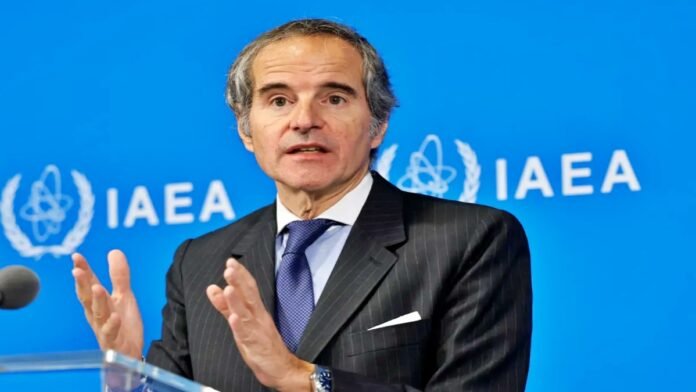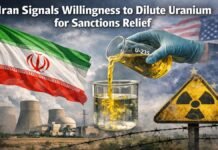
Key Points:
- Iran’s military demands the hanging of IAEA chief Rafael Grossi, accusing him of treason and espionage.
- Tensions escalate after US strikes on three Iranian nuclear sites, allegedly following Grossi’s warning about Iran’s nuclear weapons capability.
- Iran claims Grossi spied for foreign agencies and was complicit in attacks causing Iranian deaths.
- Grossi maintains Iran’s nuclear program remains largely intact and could recover bomb-making capability within months.
- IAEA reports Iran may have moved 408.6 kg of highly enriched uranium enough for multiple nuclear bombs to undisclosed locations.
Tehran: In a dramatic escalation of nuclear tensions, Iran’s military has publicly called for the execution of International Atomic Energy Agency (IAEA) Director General Rafael Grossi, accusing him of treason, espionage, and complicity in the deaths of Iranians. This comes in the wake of recent US airstrikes on three key Iranian nuclear sites, which reportedly followed Grossi’s public statements warning that Iran was close to developing nuclear weapons.
Iran’s Accusations: Spying and Complicity in Attacks
Iranian military officials took to social media, alleging that Grossi acted as a spy for “Modas” (believed to be a reference to foreign intelligence agencies) and demanding that he be prosecuted and hanged. The posts claim, “Dozens of documents prove that he was spying,” and accuse Grossi of direct involvement in the attacks that struck Iranian nuclear facilities during the recent Iran-Israel conflict.
Grossi’s Statements: Iran’s Nuclear Program Still Intact
Despite the recent strikes, Rafael Grossi has publicly stated that Iran’s nuclear program remains fundamentally undamaged. According to Grossi, while some facilities have been hit, the core infrastructure is still operational. He warned that Iran could regain the capacity to produce weapons-grade uranium within a matter of months, suggesting that the setback from the attacks may be temporary.
Uranium Stockpile Raises Alarm
Adding to international concerns, the IAEA recently reported that Iran may have moved 408.6 kg (about 900 pounds) of uranium enriched up to 60% to undisclosed locations. This enrichment level is just below the 90% threshold needed for nuclear weapons, but this quantity is theoretically sufficient to produce more than nine nuclear bombs. The whereabouts of this stockpile remain unknown, raising fears about Iran’s intentions and the effectiveness of international oversight.
Political and Security Fallout
The situation has sparked outrage and anxiety both within Iran and internationally. Iranian officials are using Grossi’s statements as evidence of foreign interference and justification for their harsh rhetoric. Meanwhile, Grossi’s warnings have heightened global concerns about the speed with which Iran could rebuild its nuclear weapons program, despite recent military setbacks.
What’s Next?
- Diplomatic Tensions: The call for Grossi’s execution is likely to strain Iran’s already fragile relations with the IAEA and the broader international community.
- Nuclear Oversight at Risk: Accusations against the IAEA chief could hinder future inspections and cooperation, making it harder to monitor Iran’s nuclear activities.
- Regional Security Concerns: The uncertainty over Iran’s uranium stockpile and its bomb-making potential could escalate tensions in the Middle East and beyond.



















































